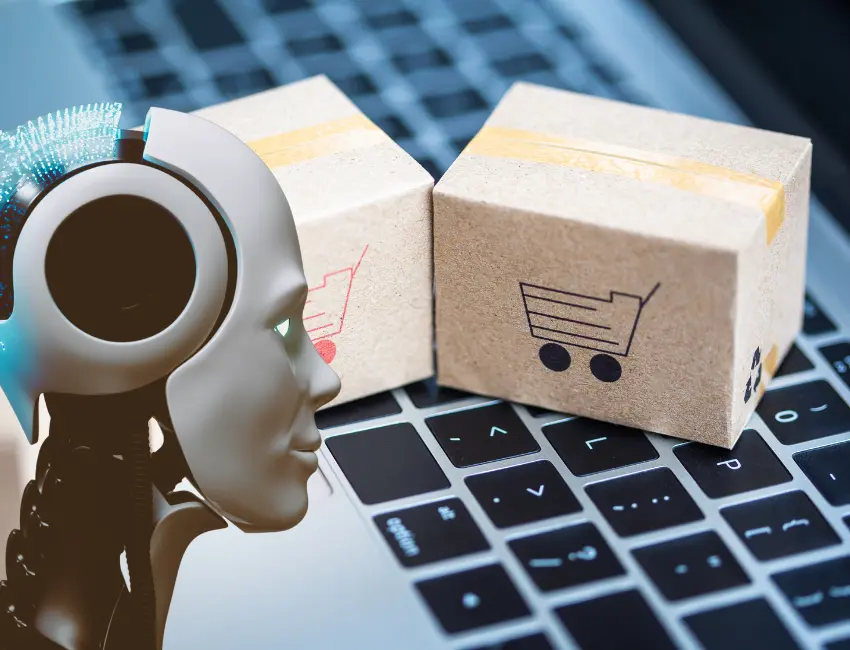

AI tools for eCommerce include chatbots for automated support, recommendation engines for personalization, image recognition for visual search, dynamic pricing systems, and predictive analytics for demand forecasting. These tools streamline operations, boost sales, and enhance customer experience across digital storefronts.
Running an online store today is not just about listing products. It’s about doing things smarter, and better. With millions of choices and growing customer needs, online businesses need help. This is where AI tools come in. These tools save time and costs, and help you understand what your customers want.
We’ll look at easy-to-use best AI tools for ecommerce. These tools can help you with a lot of things that help develop business, and keep your customer happy. No matter if you run a small online shop or a big brand, these tools can help you grow.
Let’s see how tools we’ve listed down there make the life of ecommerce store owners easier than ever!
Running an online business today is very different from a few years ago. Back then, most tasks were done by hand. Store owners had to update products, reply to every customer, and guess what people wanted. That was slow and often led to mistakes.
Now, things move much faster and customers expect quick service. This is where AI comes in. AI tools can do many jobs for you automatically. They can suggest the right products, reply to common customer questions, and even help manage stock.
AI also learns from customer behaviour. It remembers what people like and helps offer better choices. This means your store works faster and gives shoppers a better experience. This leads to more sales and happy customers.

Running an online store is exciting but also a lot of work. From writing product descriptions to helping customers and managing stock, there’s always something to do. That’s why many ecommerce businesses are now using AI tools. These tools help save time, reduce errors, and make your store smarter.
Here are the top 10 AI tools that can help your online store grow faster and work better.
Jasper is one of the best tools for writing product content. It uses AI to help you create product descriptions, email campaigns, blog posts, and even ad copy. You simply give it some details, and Jasper writes full sentences in your brand’s voice.
For example, if you have a new handbag, Jasper can generate a trendy description to fit your brand. It saves hours of work and gives your team back time to do marketing, customer service, and all the other important stuff.
If you use Shopify for your store, you already have a smart AI available to you called Shopify Magic. It’s a built-in tool that can write product descriptions, respond to customer inquiries and can help you write emails.
The best part? You don’t need to be a tech expert to use Shopify. Everything works directly from your Shopify dashboard. It’s great for small shop owners who handle everything on their own.
ChatGPT can become your store’s smart helper. It answers customer questions like “When will my order arrive?” or “How do I return a product?”. You can train it to use your own FAQs, policies, and product info.
ChatGPT works well with platforms like Zendesk or Intercom. It helps reduce wait time, makes customers happy, and frees up your team from answering the same questions again and again.
Clerk.io is like a personal shopper for your customers. It looks at what people search for, what they click, and what they buy. Then it suggests products they are more likely to purchase.
For example, if someone buys a phone case, Clerk.io might recommend a screen protector or charger. This increases your average order value and keeps shoppers on your website longer.
Rebuy helps you make the most of every visit to your site. It suggests extra products during checkout, in emails, or on product pages. These suggestions are smart. They’re based on what the customer has already viewed or added to the cart.
Rebuy is a great way to increase sales without needing more traffic. It makes sure no sale is left behind.
Levity is perfect for simplifying small but time-consuming jobs. It helps with tasks like sorting customer emails, checking product reviews, or managing return requests. You don’t need to be a developer or tech expert.
With Levity, you only need to teach the tool once using examples and then it keeps doing the task automatically. It’s great for small and mid-sized teams that want to save time.
You may have the best product, but if your email subject line is boring, people won’t open it. That’s where Phrasee helps. It uses AI to write catchy email subject lines and call-to-action (CTA) buttons.
Phrasee also tests which words get the most clicks. Over time, your emails get better results. There will be more email open rates, more clicks, and more sales. It’s among the best AI tools for ecommerce marketing.
Vue.ai is perfect for fashion and lifestyle brands. It uses AI to tag product images, suggest outfits, and even build virtual try-on tools.
This helps shoppers search better and also makes your store look more modern. Customers can see how clothes look together, which helps them feel confident before buying.
LivePerson turns a chat box into a full shopping assistant. Customers can ask questions, get product options, and even buy all inside the chat.
For example, someone might ask, “Do you have this in a different size?” The AI checks your stock and replies right away. This makes shopping smooth and fast, especially on mobile.
DataRobot performs like a pro when helping you plan your inventory. It utilizes AI to analyze historical sales data, weather patterns, and consumer purchasing behavior to make recommendations on what and when a product should be ordered.
For large stores or stores with a seasonal product line, this can help reduce product shortage and overspending. It helps save money and increase consumer satisfaction.
Not all pID OR free ai tools for ecommerce fit every business. First, ask yourself:
Also think about:

AI tools can make your online store work faster, sell more, and make customers happy. Here’s how AI helps in different parts of your business:
Writing product descriptions, emails, and ads takes a lot of time. Tools like Jasper or Shopify Magic can write these for you. You just give some details, and the tool creates the text. This helps your team focus on other important tasks.
Tools like Clerk.io and Rebuy learn what customers like. They suggest the best products during shopping. This makes it easy for people to find what they want and helps you sell more items on every visit.
Answering the same customer questions again and again can be tiring. With ChatGPT or LivePerson, you can use AI chatbots to reply instantly. These tools work all day and night. That means fewer support costs and faster replies.
Managing inventory is hard. Sometimes you buy too much or too little. Tools like DataRobot can tell you what to restock, when to order, and how much to keep. This saves money and avoids delays.
When AI helps with writing, product suggestions, and planning, your store runs smoother. You save time, and money, and give customers a better experience.
WebOsmotic helps online stores set up and use the best AI tools. Whether you want to automate content, set up a chatbot, or manage stock better, we help you choose the right tools and then we make them work for you.
We offer:
We keep things smooth and simple to grow with you.
Ecommerce is changing fast. AI tools help you keep up. They handle tasks, speed up service, and improve how your store works. Whether you’re just starting or already big, it’s the right time to try AI tools and grow.
With WebOsmotic, you’re not just using AI, you’re using it the smart way.